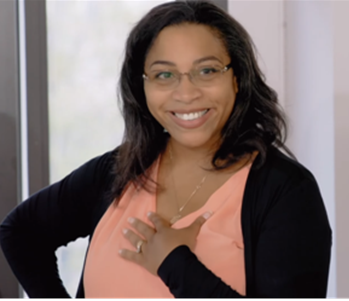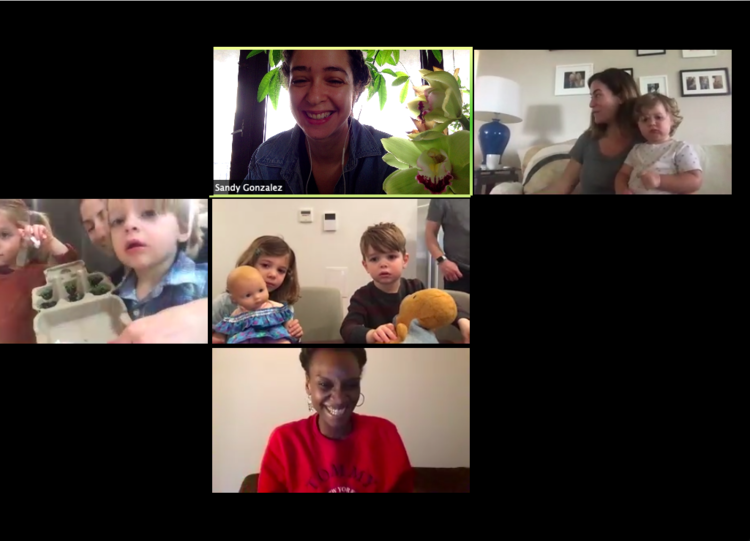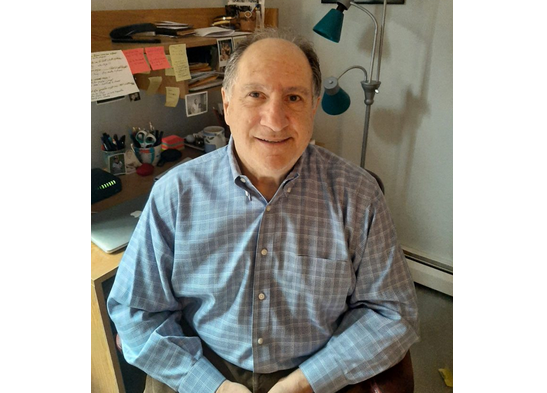As many leaders in early childhood care and education pursue continued education, it’s important to consider your well-being while navigating professional development. This excerpt from a piece by Zoraima Rosario-Rolón, a NYC Early Childhood Research Network Early Career Scholar, may prompt reflection.
“I am not a quitter! My mother is not a quitter! I can’t be my children’s role model if I quit!”

These were the words resonating in my head during my doctoral studies on educational leadership, as I encountered mental exhaustion and was unmotivated to read or write about my topic. I realized through my guilt that, as a doctoral student, I created perspectives and coping skills that were unhealthy and unrealistic. In this post I’ll talk about my experience navigating what’s become a normalized practice of ignoring unspoken stressors and pressures in higher education.
Research has identified anxiety, depression, and loss of behavioral or emotional control as a result of some doctoral program experiences (Kismihók et al., 2022; Veit and Ware,1983; Kurtz‐Costes et al., 2006; Mays & Smith, 2009; Schmidt & Hansson 2018; Stubb, 2011). I experienced each of these, but “loss of behavioral or emotional control” was quite unexpected and unexplainable for me. As I aimed to complete my coursework and maintain a balance between work and family life, I refused to acknowledge that I was experiencing psychological distress and mental fatigue. I was lying to myself that I was “pushing through.”
After my beloved dog Pip unexpectedly passed away, I could no longer maintain that lie. The emotional outbursts that followed were difficult for me to understand. This was not the first time I had experienced loss, so what was different? It is clear to me now that my reaction was the perfect storm: the culmination of all the normalized stressors I encountered throughout my doctoral program exacerbated by my personal loss, which propelled me to quietly, but overwhelmingly, snap.
While my reflections are based on my experience in a doctoral program, I share the following four learnings with the intention that they may be helpful for others planning and going through academic transitions.
- Higher education should stop normalizing stressors and maladaptive signs of psychological or physiological well-being as part of the doctoral journey. Constantly overlooking doctoral students’ anxious or depressive behaviors and emotional distress is detrimental. Dealing with grief and loss in the process of chasing a doctoral dream is complex – especially when it is left unaddressed and when doctoral students are unprepared to adapt to the transition. Supervisors and programs should accept accountability for their doctoral students’ well-being to support not only their persistence but more importantly, their resilience.
- Perspective is everything as a doctoral student. Doctoral candidates might shift their mindset from “being a quitter or failure” and reframe it to “pausing and regenerating.” Adapt a growth mindset by seeing unanticipated disappointments or frustrations as a place to grow from. Refrain from creating big images of success (e.g. graduation, publishing, etc.) and think “less is more.” Aim for small accomplishments and let those small accomplishments serve as your measure of success.
- It is vital to listen to what your body is saying. Love yourself and give yourself grace. If you find yourself exhausted, unable to sleep or have a basic conversation and you are nervous most of the time, that is not normal! “Pushing through,” as I often defined my progress, can be unhealthy. The wall you are trying to push through can be extremely thick and knock you down. Instead, take the time to articulate the emotions you are experiencing. Talk to someone and take pride when doing so! You do not receive an extra stripe on your graduation robe for holding in your fears, uncertainties, and frustrations. Sometimes talking can be the best tool to help you “chip” away at the wall!
- Last, the journey to becoming an academic scholar is less about the end product and more about the process. Focusing on the end product, as I often did, prevented me from seeing my academic transformation. The process of transition is complex, but it is also exhilarating and invigorating, especially when you take time to acknowledge the positives (i.e., affirming one’s own expertise) and your growth (i.e., knowledge being gained). You do not produce scholarly work, you become it. So, respect the process!
Zoraima Rosario-Rolón is a doctoral student at Manhattanville College’s Educational Leadership in Higher Education Program. She is a project coordinator, trainer and coach at the New York Early Childhood Professional Development Institute, an adjunct clinical lecturer at Hunter College’s Early Childhood Program, and a content consultant for Sesame Street in Communities’ Social Impact Department.


